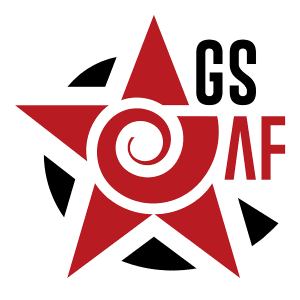Welcome to Panel III, where we’ll explore the enduring relevance of the Non-Aligned Movement (NAM) and its evolving role amid new developments in the Global South. Our distinguished panelists—Jesús Ramírez Cuevas, Juliane Furno, Llanisca Lugo, and Monica Bruckmann—will offer critical insights into how NAM continues to navigate a complex and shifting geopolitical landscape.
Understanding the Non-Aligned Movement in a Multipolar World
The Non-Aligned Movement, forged in the crucible of the Cold War, emerged as a powerful voice for nations seeking to assert their sovereignty and pursue independent foreign policies, free from the dictates of dominant blocs. In a world increasingly defined by multipolarity, climate crises, and economic inequalities, the foundational principles of NAM—self-determination, national sovereignty, territorial integrity, and non-interference—remain remarkably pertinent.
Our discussion will delve into:
- NAM’s Historical Significance and Enduring Principles: How have the original tenets of Bandung and Belgrade adapted to contemporary challenges? What lessons can be drawn from NAM’s past successes and struggles in fostering South-South cooperation?
- The Global South’s Evolving Landscape: We’ll examine the diverse political, economic, and social dynamics shaping the Global South today. This includes the rise of new economic powers, regional integration initiatives, and the ongoing struggles against neocolonialism and unequal global structures.
- Challenges and Opportunities for NAM: What are the major obstacles facing NAM in the 21st century, from internal divisions to external pressures? Conversely, what opportunities exist for NAM to strengthen its collective voice on issues such as climate justice, debt relief, technological sovereignty, and peacebuilding?
- Case Studies and Regional Perspectives: Our panelists will draw on specific examples from Latin America, Africa, and Asia to illustrate how countries within the Global South are forging new alliances, pursuing alternative development models, and asserting their agency on the global stage.
Panelist Contributions:
- Jesús Ramírez Cuevas will likely provide insights into Mexico’s foreign policy and its engagement with countries of the Global South, perhaps focusing on regional cooperation and shared development goals in Latin America.
- Juliane Furno is expected to offer a perspective rooted in Brazil’s experience, potentially highlighting the country’s role in advocating for a more equitable international order, and its collaboration with other developing nations within frameworks like BRICS or other South-South initiatives.
- Llanisca Lugo will likely share Cuban perspectives on non-alignment, emphasizing solidarity, resistance to external pressures, and the importance of international cooperation in the face of global challenges, drawing from Cuba’s long-standing commitment to the NAM principles.
- Monica Bruckmann will bring a broader, perhaps geopolitical or geoeconomic, analysis, dissecting the structural inequalities that persist within the global system and proposing strategies for the Global South to build greater collective power and influence.
This panel promises to be a vital exploration of how the Non-Aligned Movement, far from being a relic of the past, continues to be a crucial platform for collective action and a beacon for a more just and balanced international order. We look forward to a stimulating discussion on how these new developments will shape the future of global relations.

